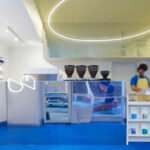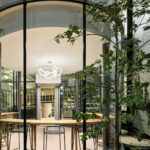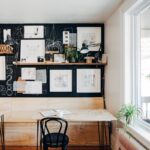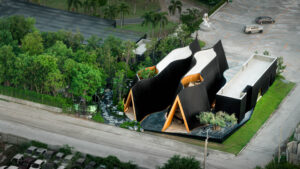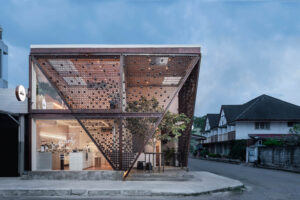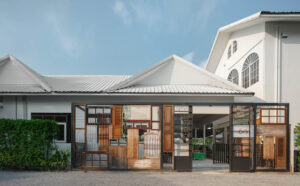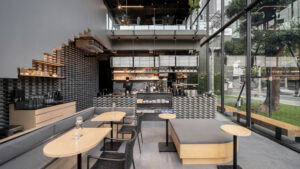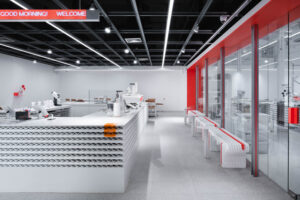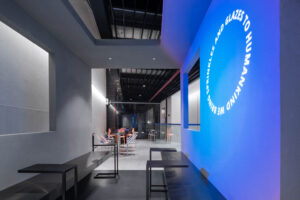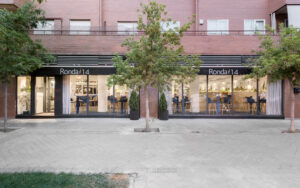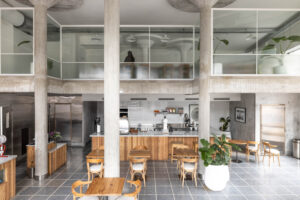Ethica Coffee Roasters: Fostering Community and Craftsmanship in Toronto
Ethica Coffee Roasters began with a spark of inspiration in West Palm Beach. The founder, Gregory, was deeply moved by the sense of community and simplicity at a local café named Subculture. This café, filled with familiar books, good music, and excellent coffee, created a welcoming atmosphere that felt like home. It was here that the concept of Ethica was born. The spacious café was designed to be a retreat from daily stresses, offering a carefully curated environment with craft furniture, art, greenery, and laptop-free tables. Every detail was meticulously planned to foster creativity and human connection.
Follow through the article for a great interview with Ethica Coffee where we discuss the origins of Ethica, what inspired the name, their approach to coffee roasting and some key values and principles that guide their coffee sourcing and roasting practices.
Designed by Tatiana Tyushnyakova, photography by Caio Santos.
To explore cafes worldwide see bestcafedesigns.com, a top 100 architecture blog and a global directory of cafes and cafe professionals
for other American cafes click here
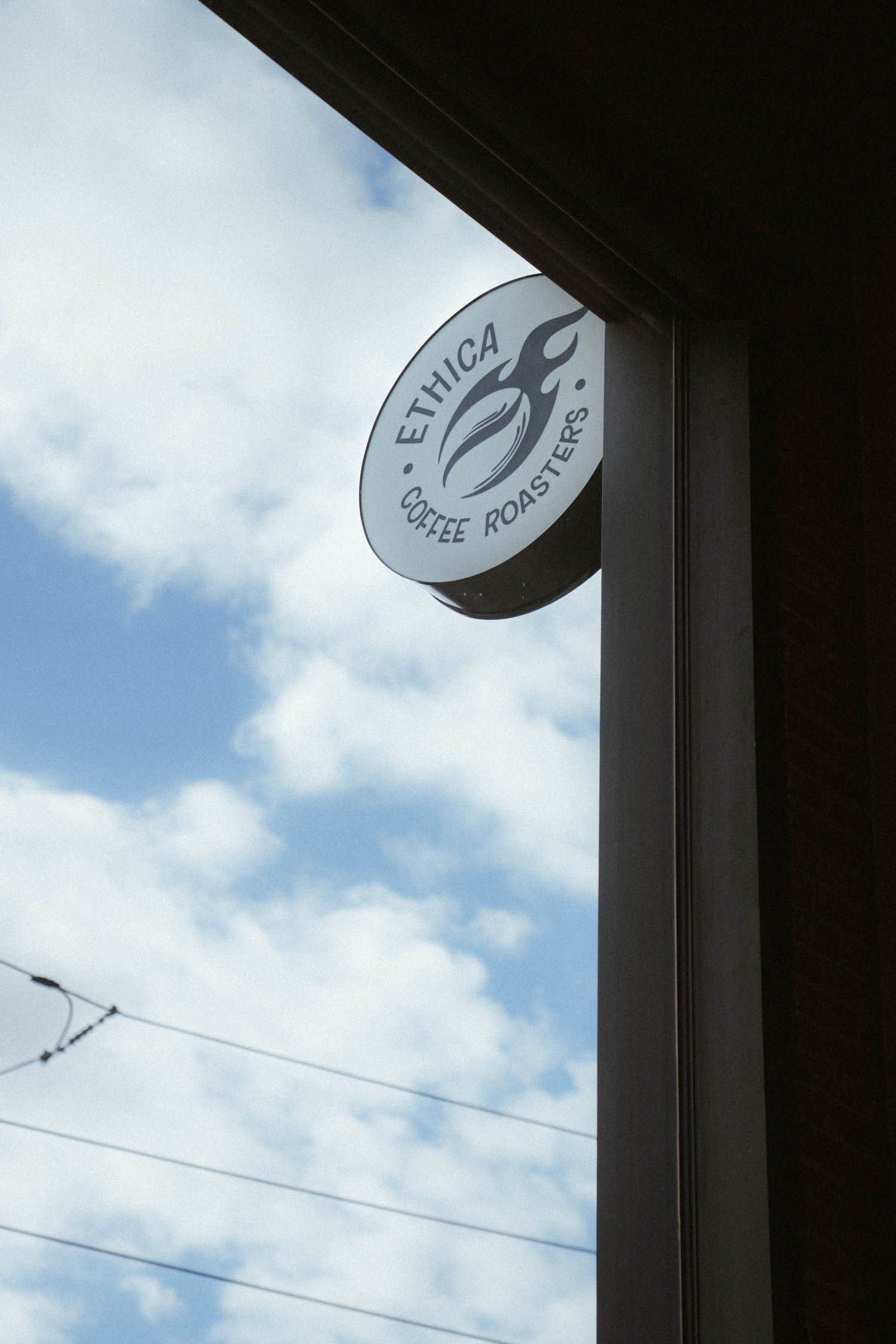
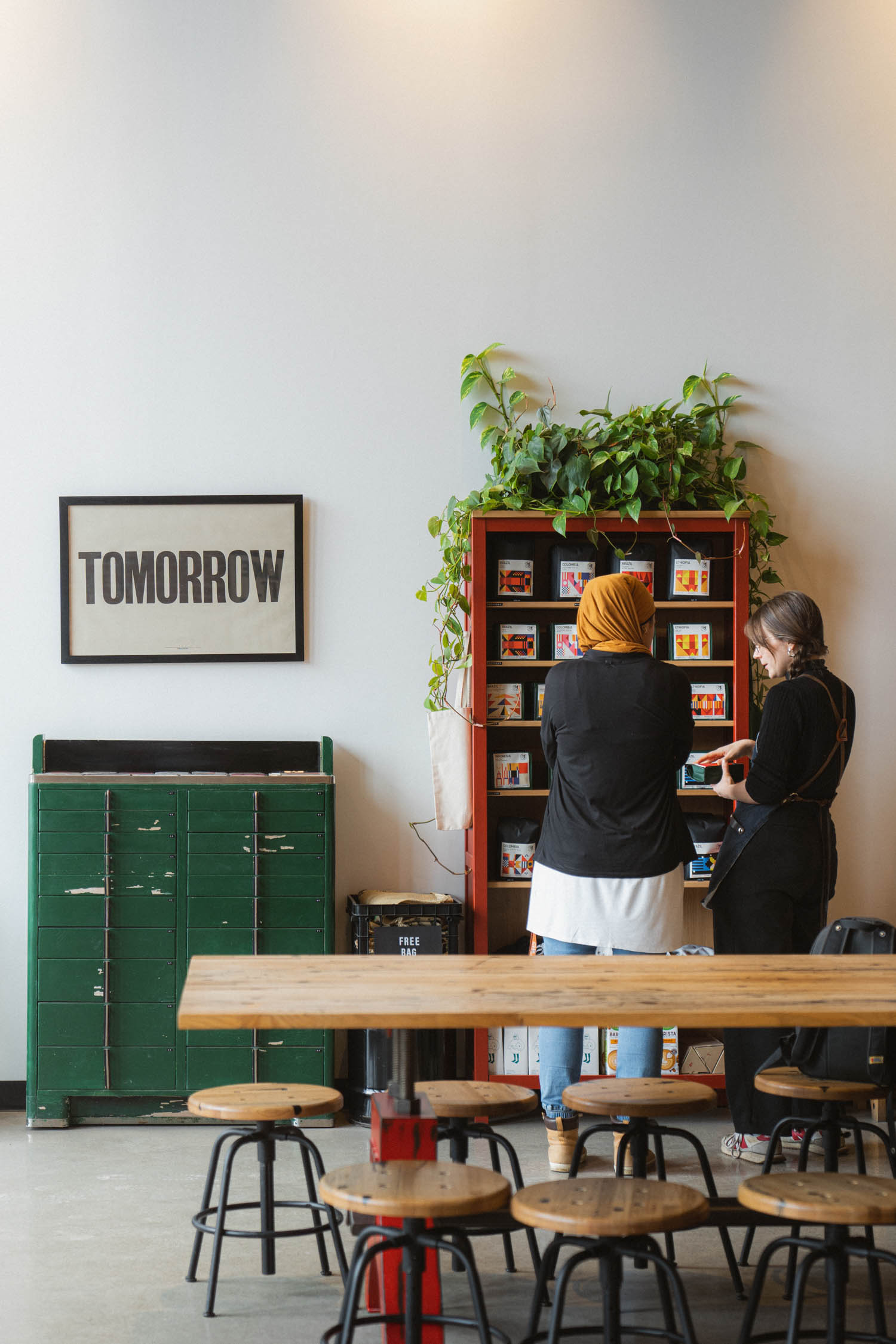
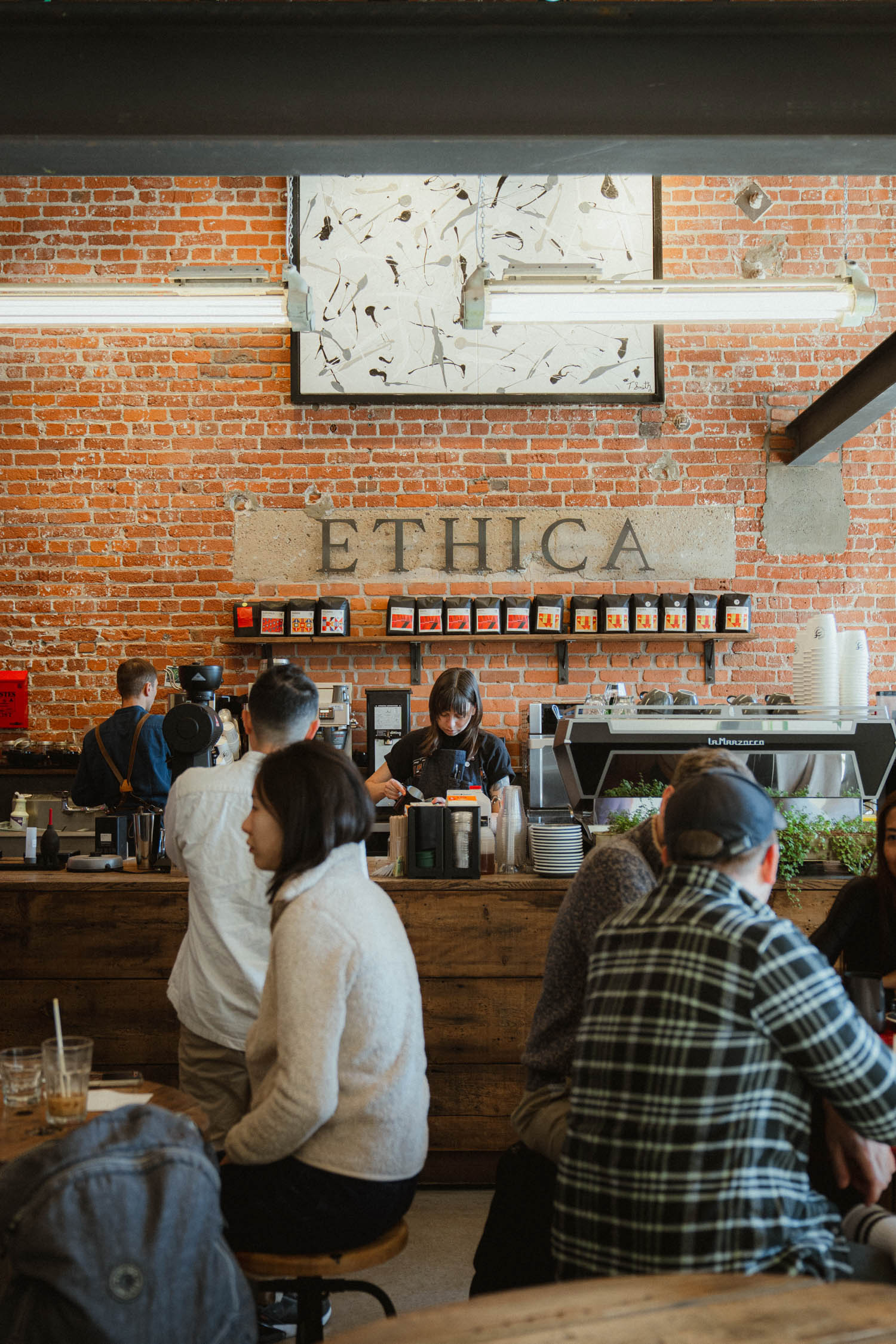
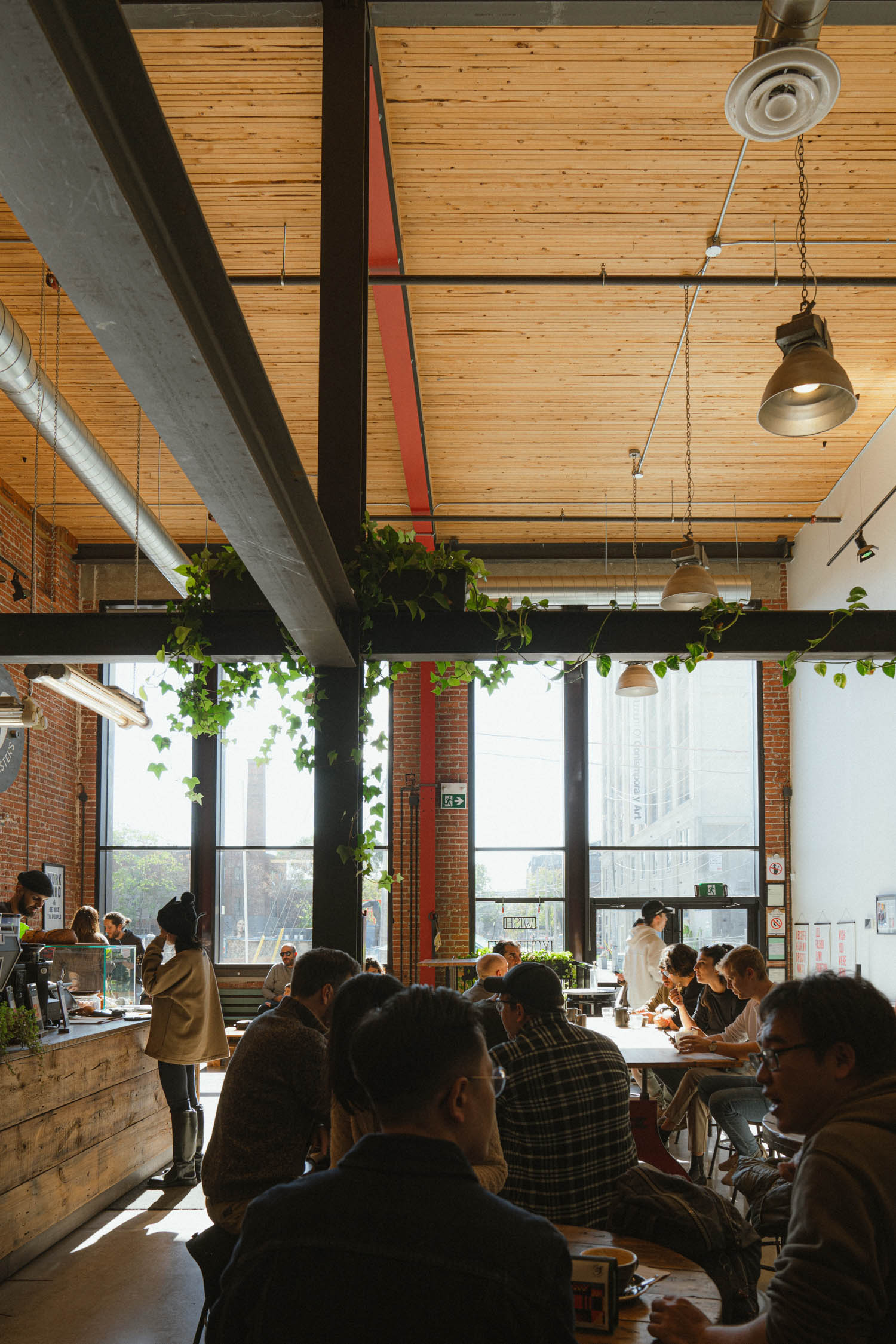
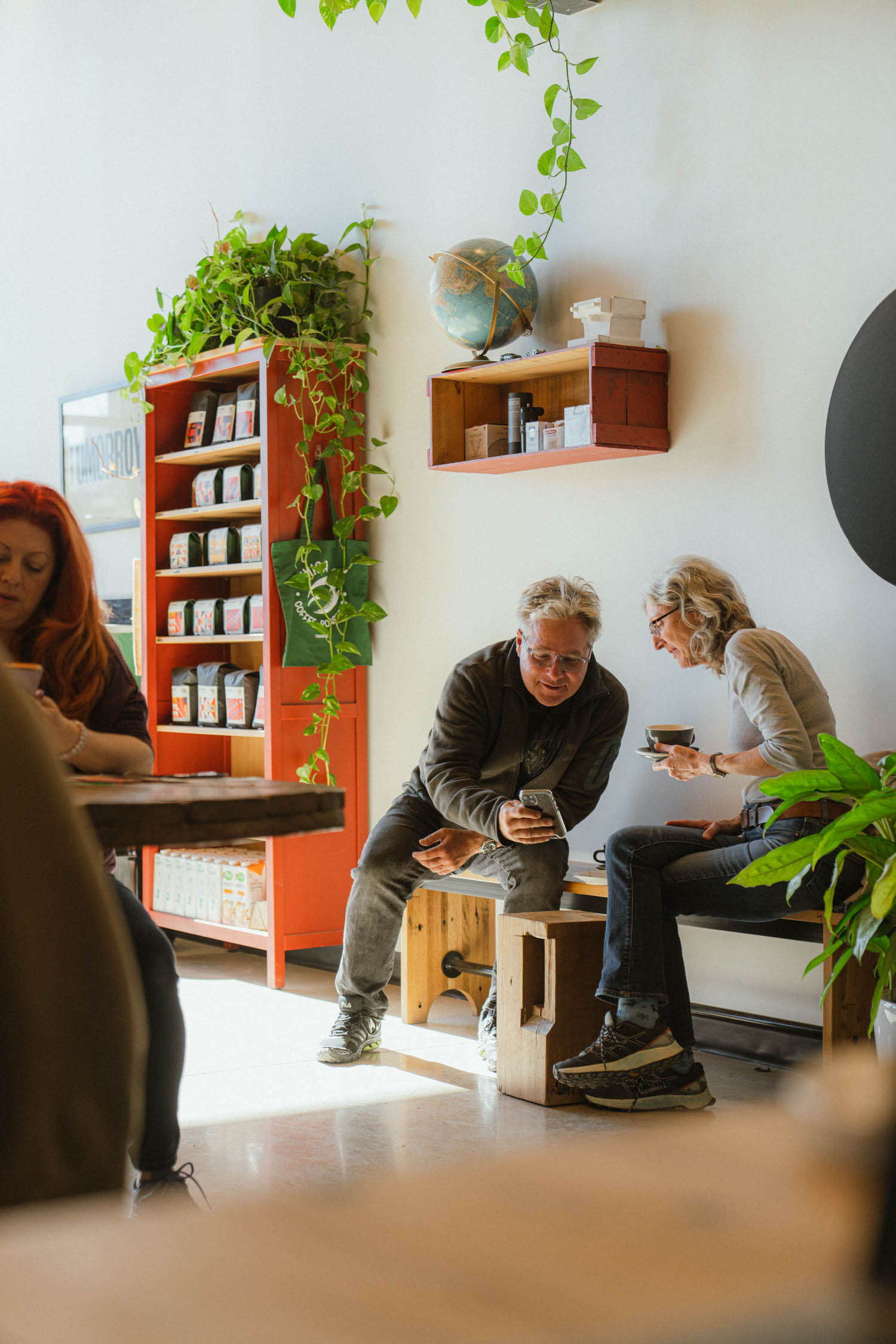
Can you tell us about the origins of Ethica Coffee Roasters? How did it all begin?
Ethica Coffee Roasters started as the moment of inspiration in West Palm Beach. Ethica’s founder Gregory discovered a local café Subculture. Simple, yet with a strong sense of community, the café was filled with familiar books, good music, and good coffee – a place you would always want to return to. That’s where the concept of Ethica was born. Spacious cafe offers a space to slow down and leave your daily tensions behind. From craft furniture and art to greenery and laptop-free tables, each detail has been carefully thought-out to create an atmosphere that nurtures creativity and human connection.
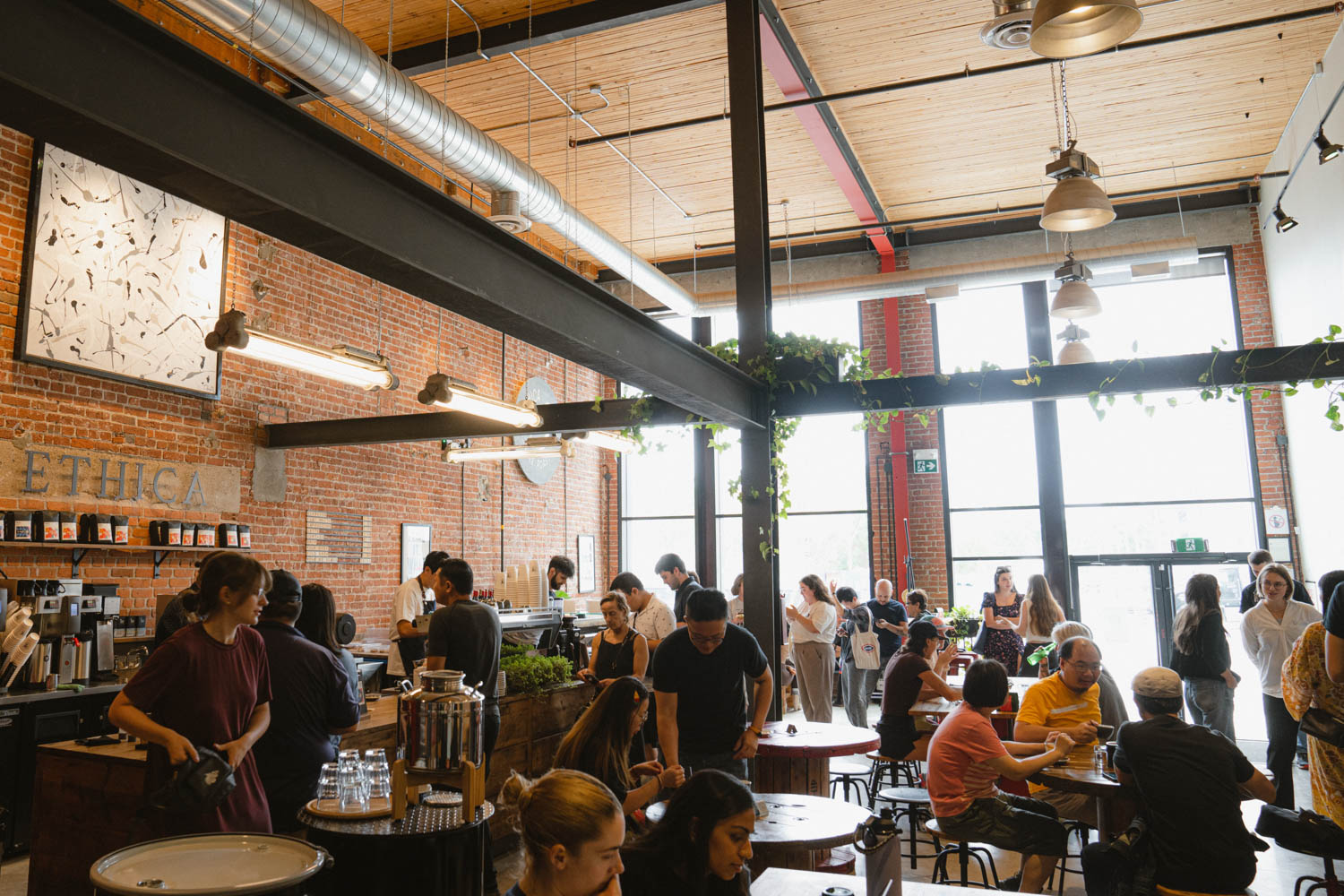
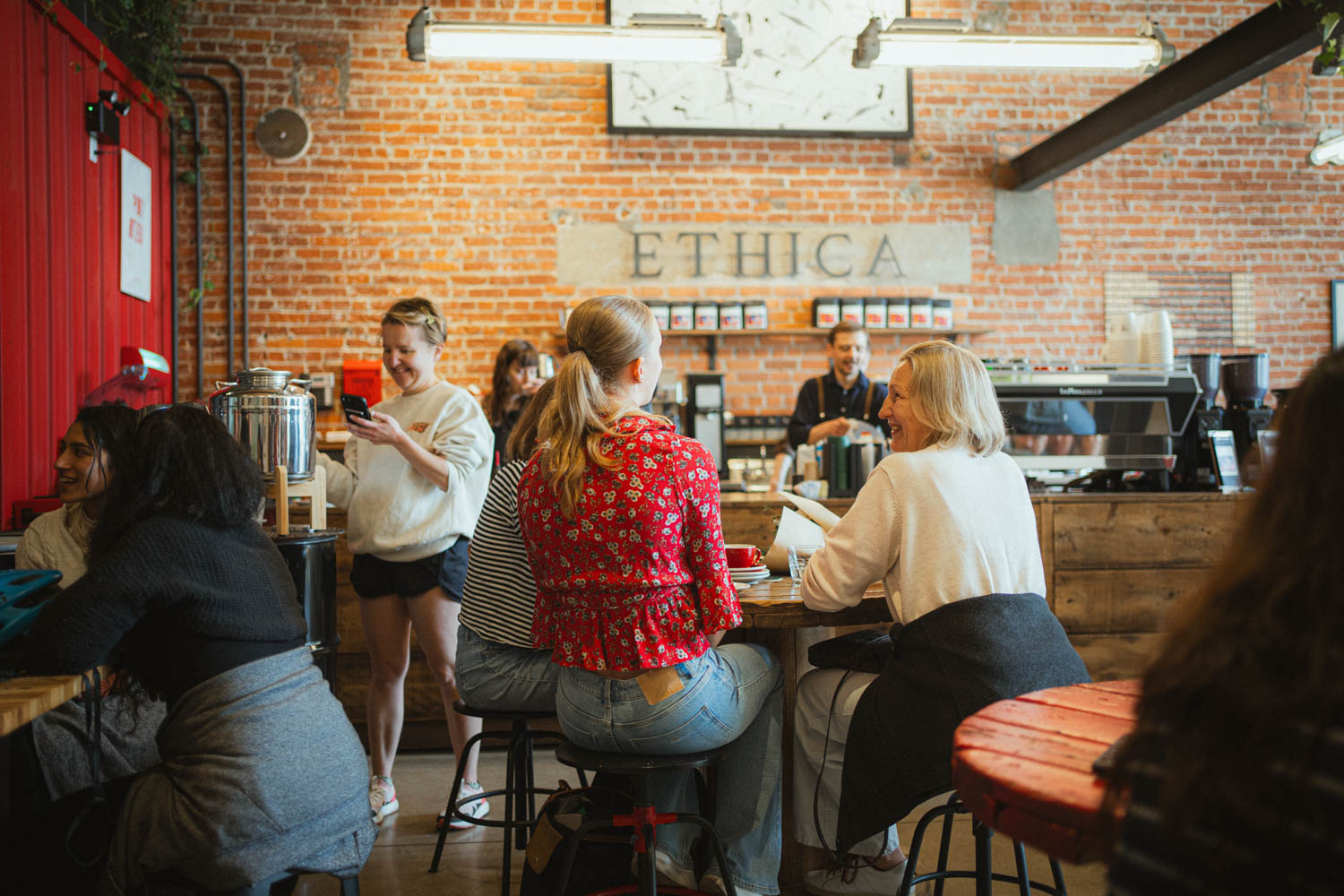
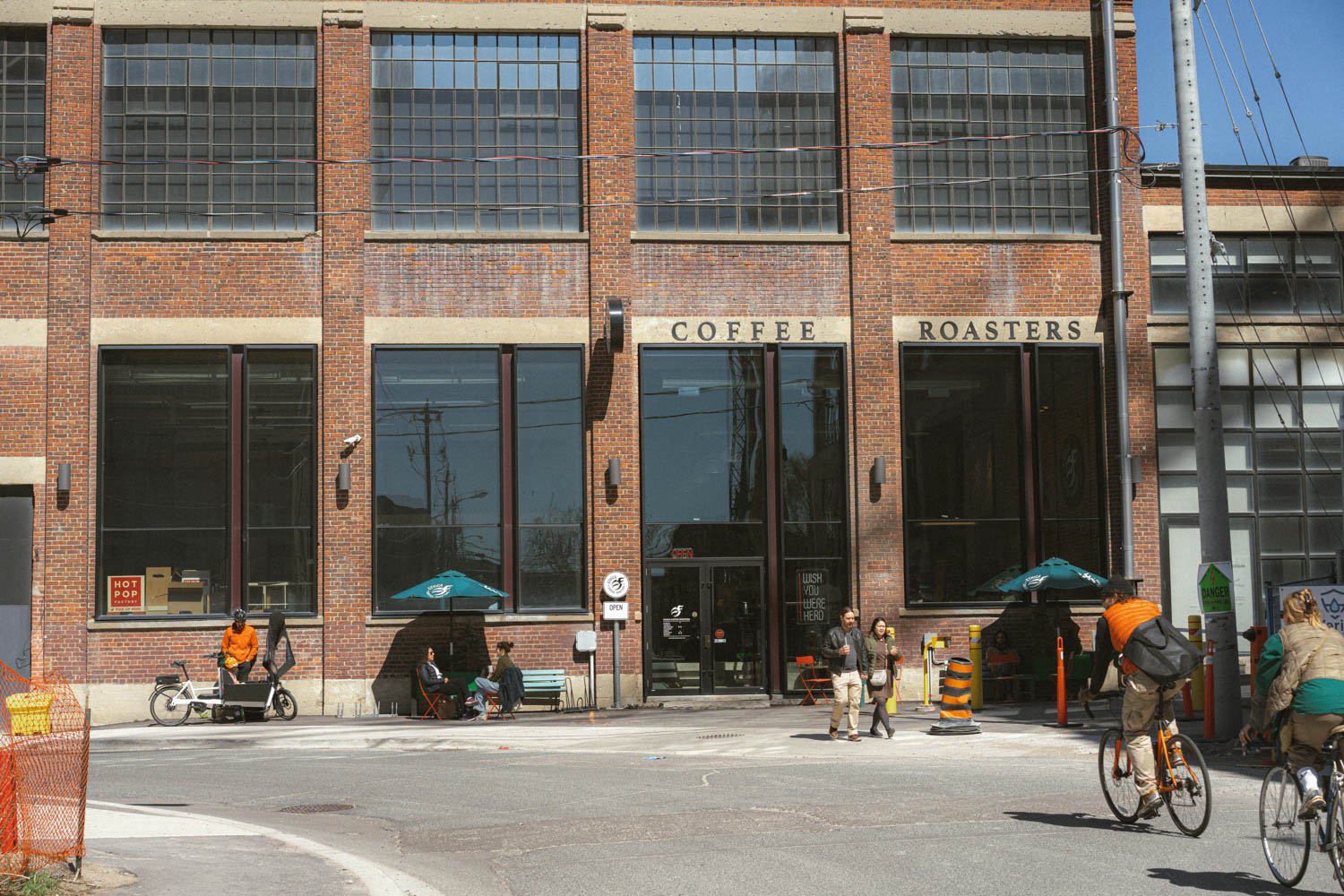
What inspired the name “Ethica Coffee Roasters”? Is there a particular story or meaning behind it?
The name Ethica is inspired by Spinoza’s Ethica Ordine Geometrico Demonstrata. The philosopher explores how we can attain inner freedom and happiness by aligning our actions with reason and virtue.
When did Ethica Coffee Roasters officially start its journey?
Ethica Coffee Roasters was established in November 2019, just 3 months before the beginning of Covid pandemic. The next few year, while challenging, pushed our team to explore new ways of growing and serving coffee to our community. Online store and the wholesale program were born at that time and to this day continue to grow.
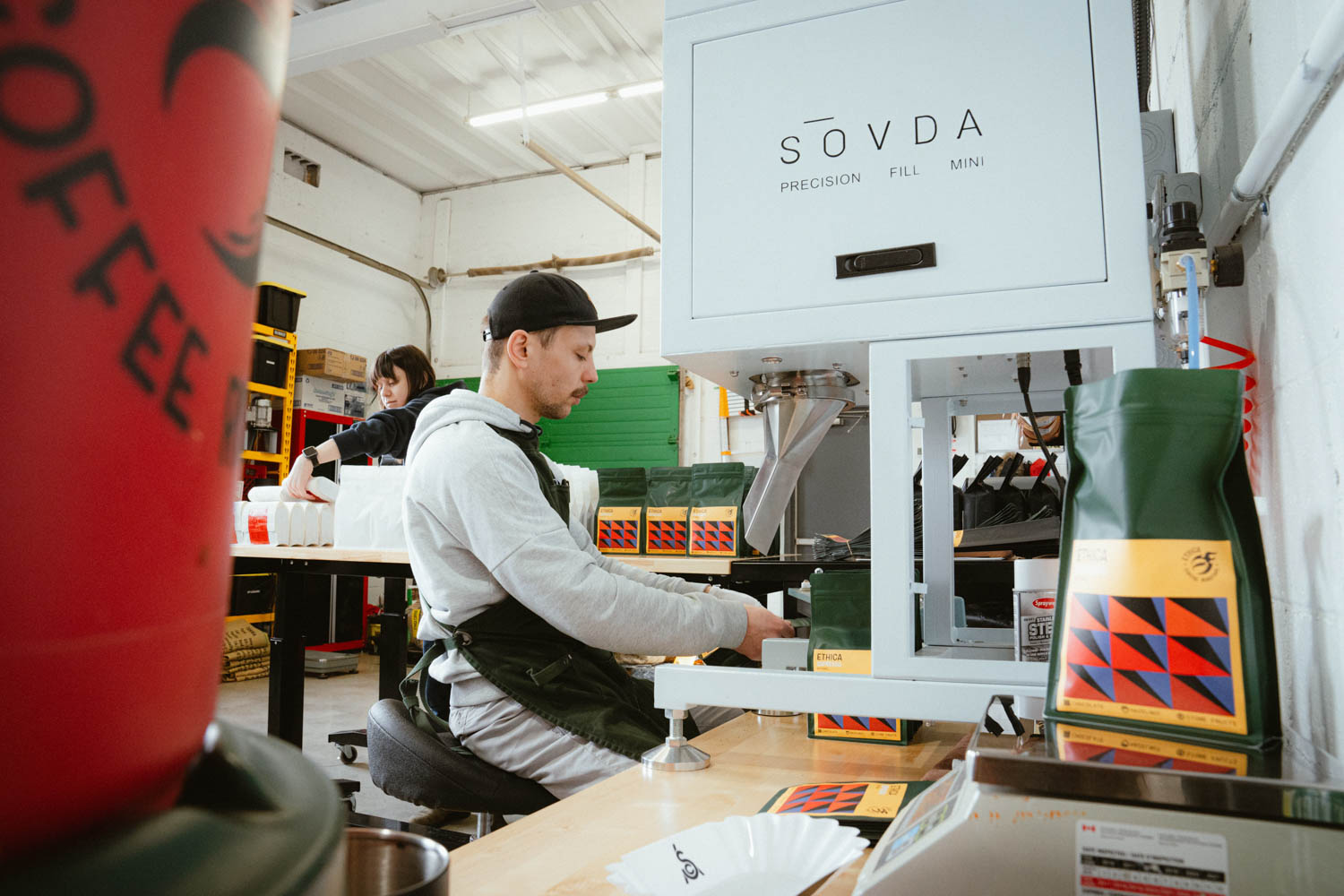
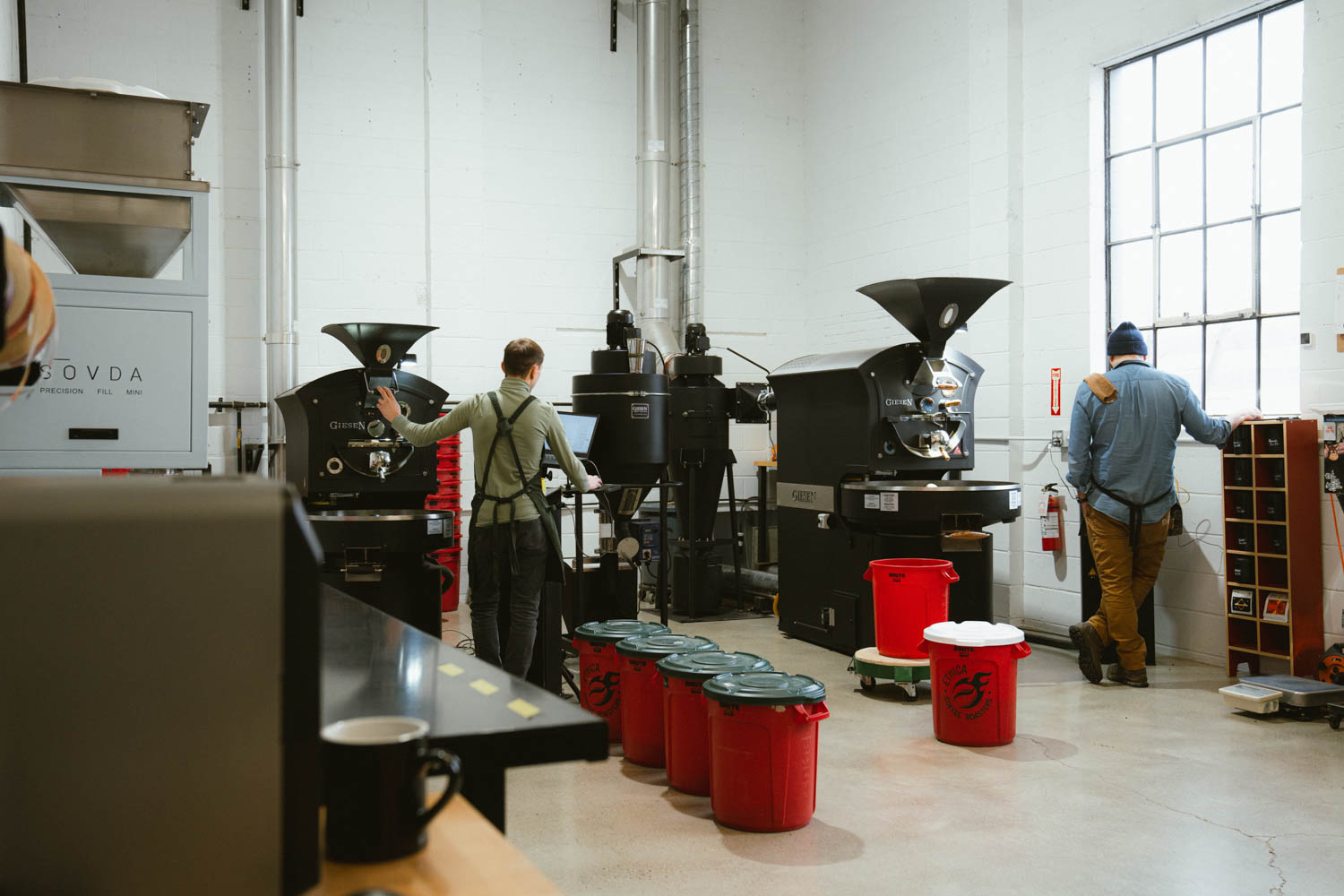
Could you describe your approach to coffee roasting? What sets your process apart from others in the industry?
We don’t have a unique roasting approach. Roasting is a method of preparation that allows to achieve some particular result in the cup. The result though is a matter of the personal preferences. That is probably the main factor that affects the outcome in a very unique way: when you try the same coffee from different roasters, it doesn’t taste the same.
However, we do use classic drum roasters made by Giesen because we are confident that conduction makes coffee brighter.
Also, our lineup is divided into two main categories: filter and espresso because the roast profiles are different.
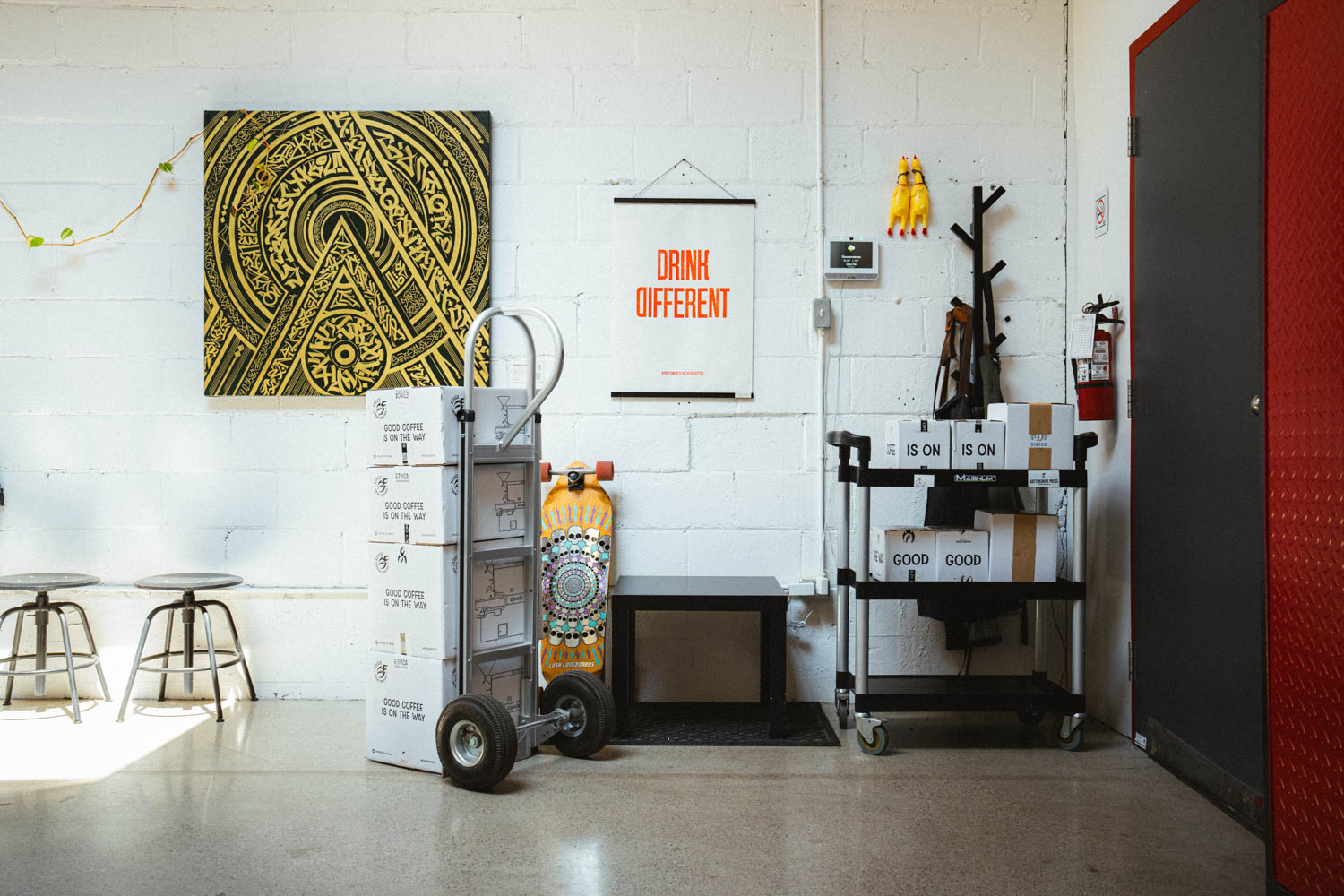
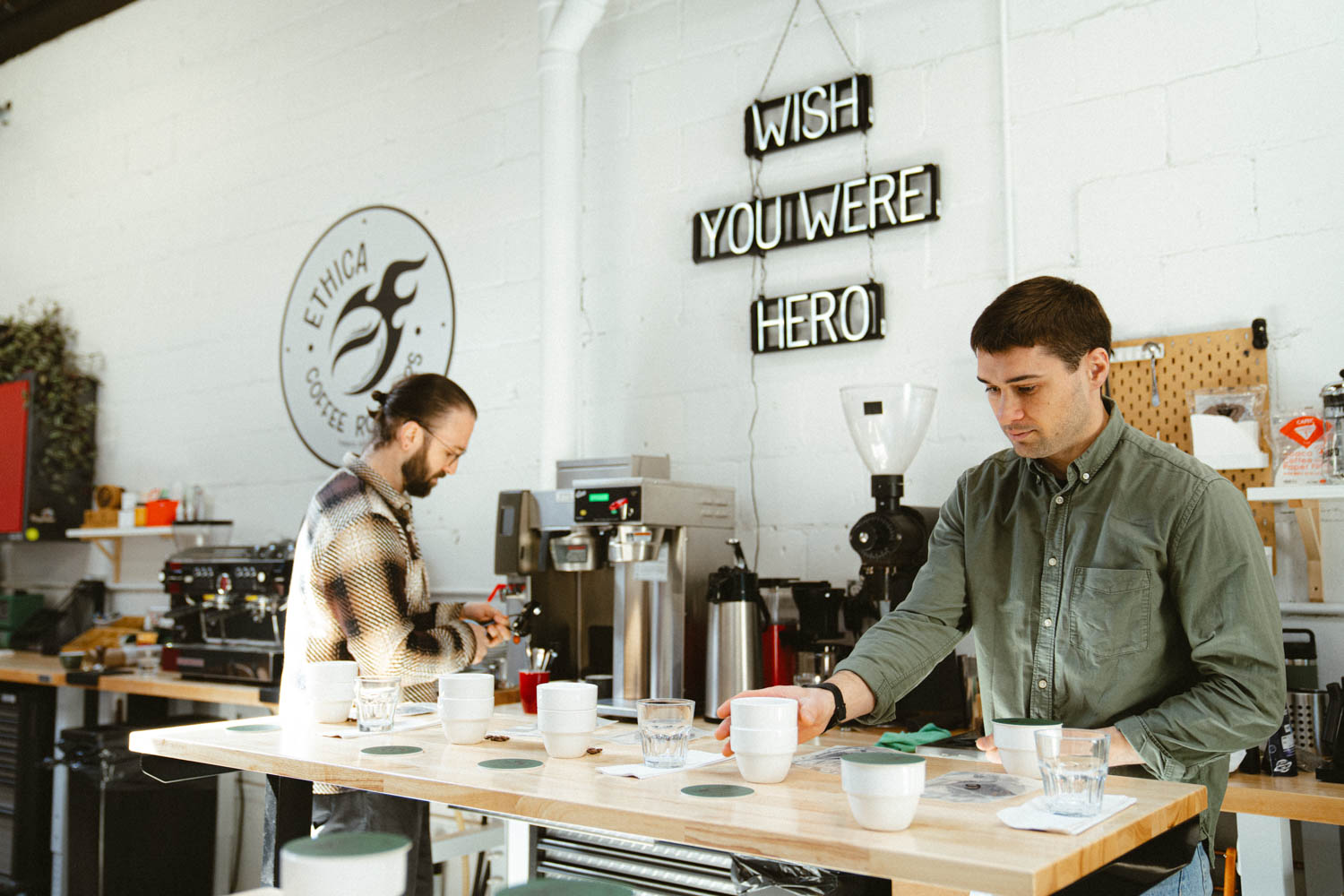
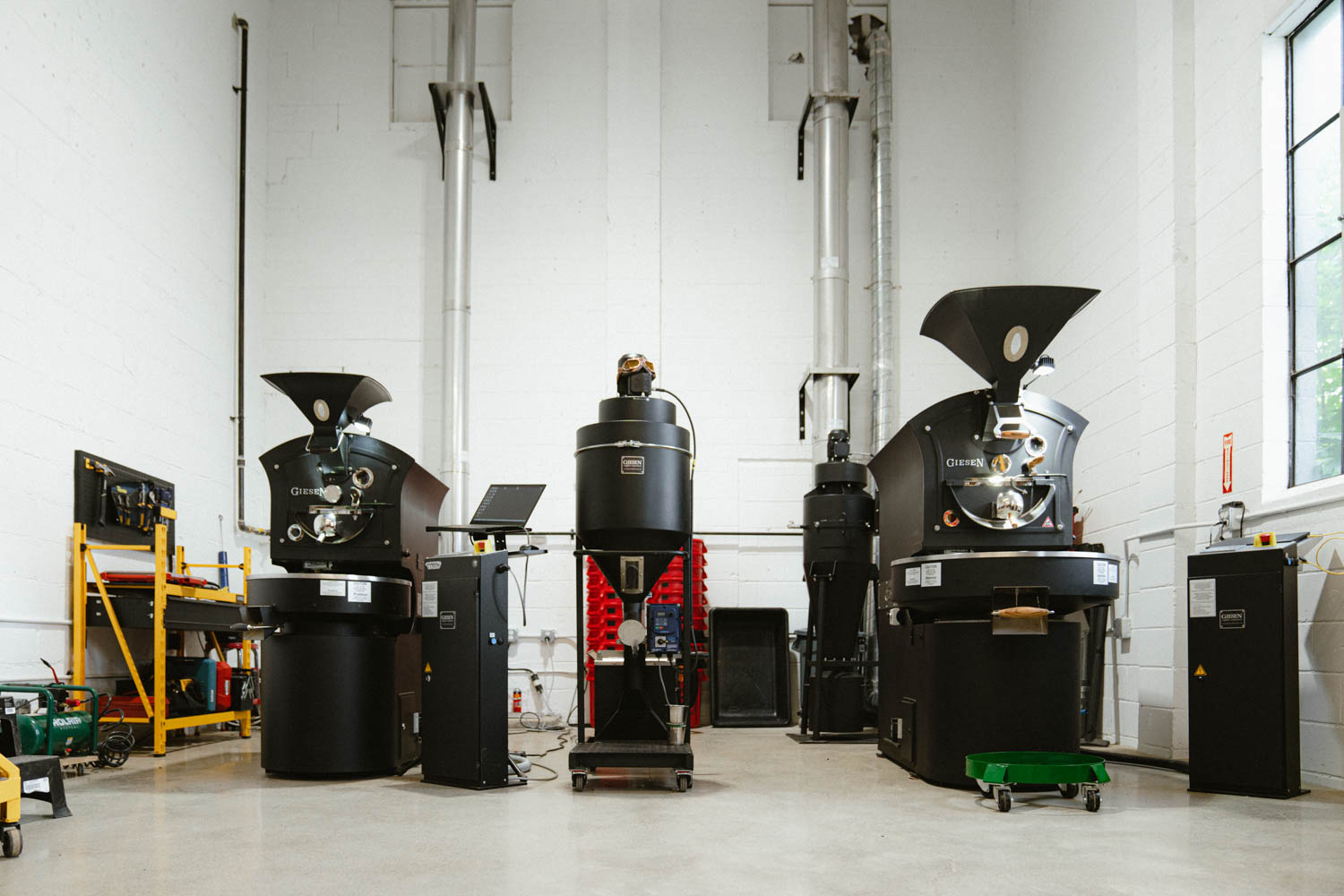
What are some of the key values or principles that guide your coffee sourcing and roasting practices?
We don’t work with giant multinational coffee suppliers because quite often the human aspect of partnership is neglected behind a curtain of the numbers. We rather choose like-minded partners who understand how important it is to build a bridge between roasters and farmers. It makes work together more meaningful.
When it comes to roasting, we aim to showcase the terroir as much as possible. With this approach, our customers have an opportunity to dive into the product more and explore the origins’ flavor profiles. For instance, Indonesian coffees have Robusta genes in almost all varieties of Arabica grown there. Along with a high humidity, It makes it distinct from the other origins.
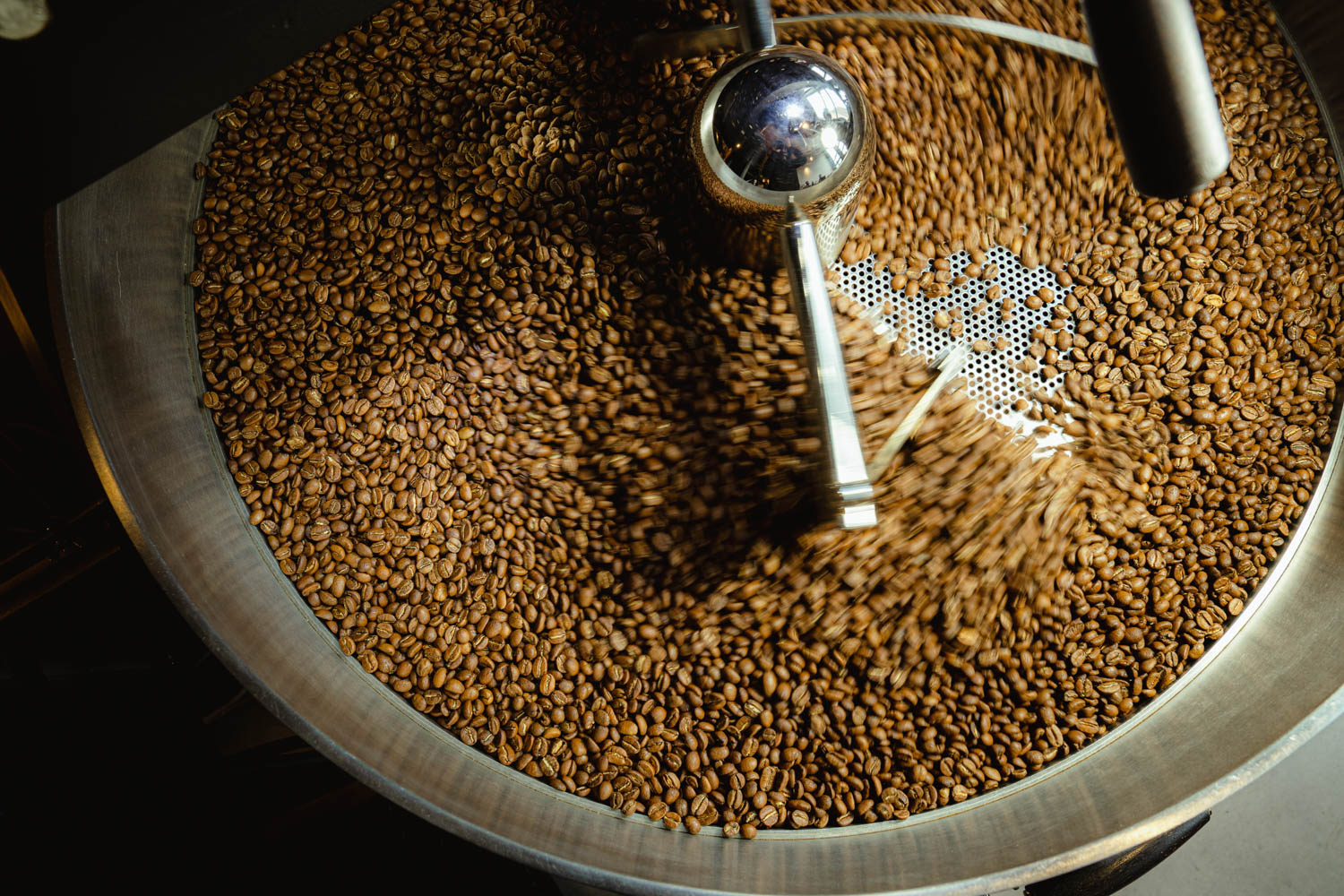
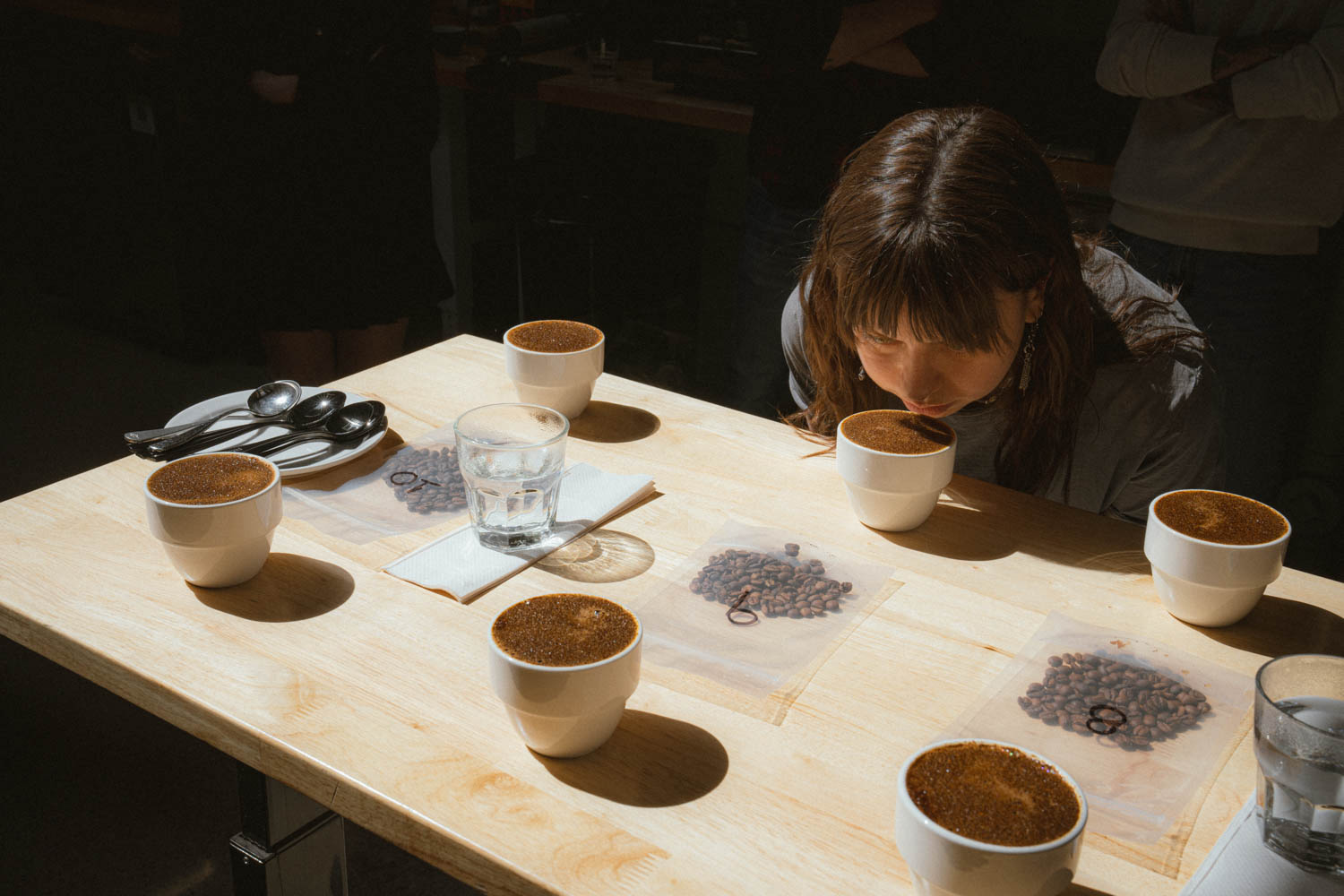
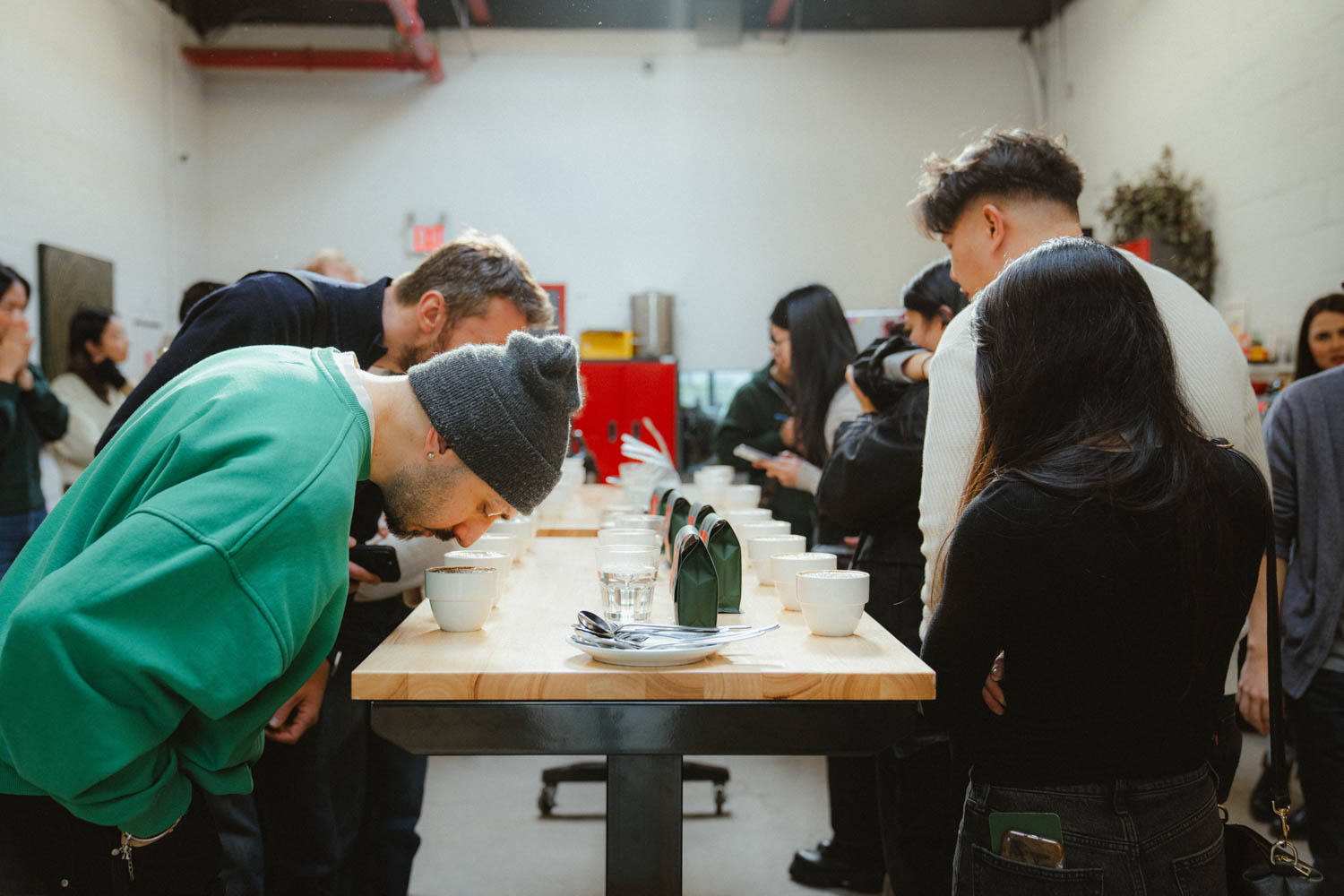
Ethica Coffee School sounds intriguing. Can you walk us through what participants can expect to learn and experience there?
Ethica Coffee School offers a full immersion into the specialty coffee industry (pun intended). Many view coffee jobs as part-time or temporary, but this is not our approach. There is a variety of professional opportunities in the specialty coffee. Our goal is to share our expertise with those eager to advance in the field. Currently we offer 3 courses. Introduction to Specialty Coffee overviews each aspect of specialty coffee, from seed to cup. Participants learn about coffee varieties, harvesting, processing, grading, exporting, roasting, storing, and brewing. Both Barista Basic and Alternative Brewing are professional full-day trainings that consist of theory and practice. We’re also developing courses on coffee roasting to expand our curriculum.
What type of events do you run at Ethica Coffee Roasters, and how do they contribute to the overall coffee culture?
At Ethica Coffee School, we host Sunday events designed to be accessible to coffee lovers of all levels. Our public cuppings are a great opportunity to explore your palette and try new coffees from Ethica and other local roasters.
One of our standout workshops is “Testing the Waters,” which benefits both home brewers and professionals. Participants taste and compare coffee brewed with tap, distilled, and mineral water (with dissolved magnesium and calcium). Not only we explore the effect of water on the taste of the brew but also the influence of water on the longevity of brewing equipment, in particular espresso machines. Comparative tasting is supported by the theoretical knowledge of how minerals and organic compounds influence extraction.
How do you select the coffee beans you use? Can you tell us about your relationship with coffee farmers and suppliers?
Our customers and partners have certain expectations of the menu composition. So, when we are choosing coffees, we keep in mind the goals we would like to fulfill.
Speaking of the relationships, we have some that have been going for years like the Barbosa Family who visited us in April of this year, and some are relatively new like David Batres – 4th generation coffee farmer in Guatemala.
We are partnering for the first time to see how the partnership is working for both of us (you will see his coffee soon on our shelf).
Here we should say that almost in all the cases we work with farmers with the help of small importing companies – our reliable like-minded partners that we mentioned earlier.
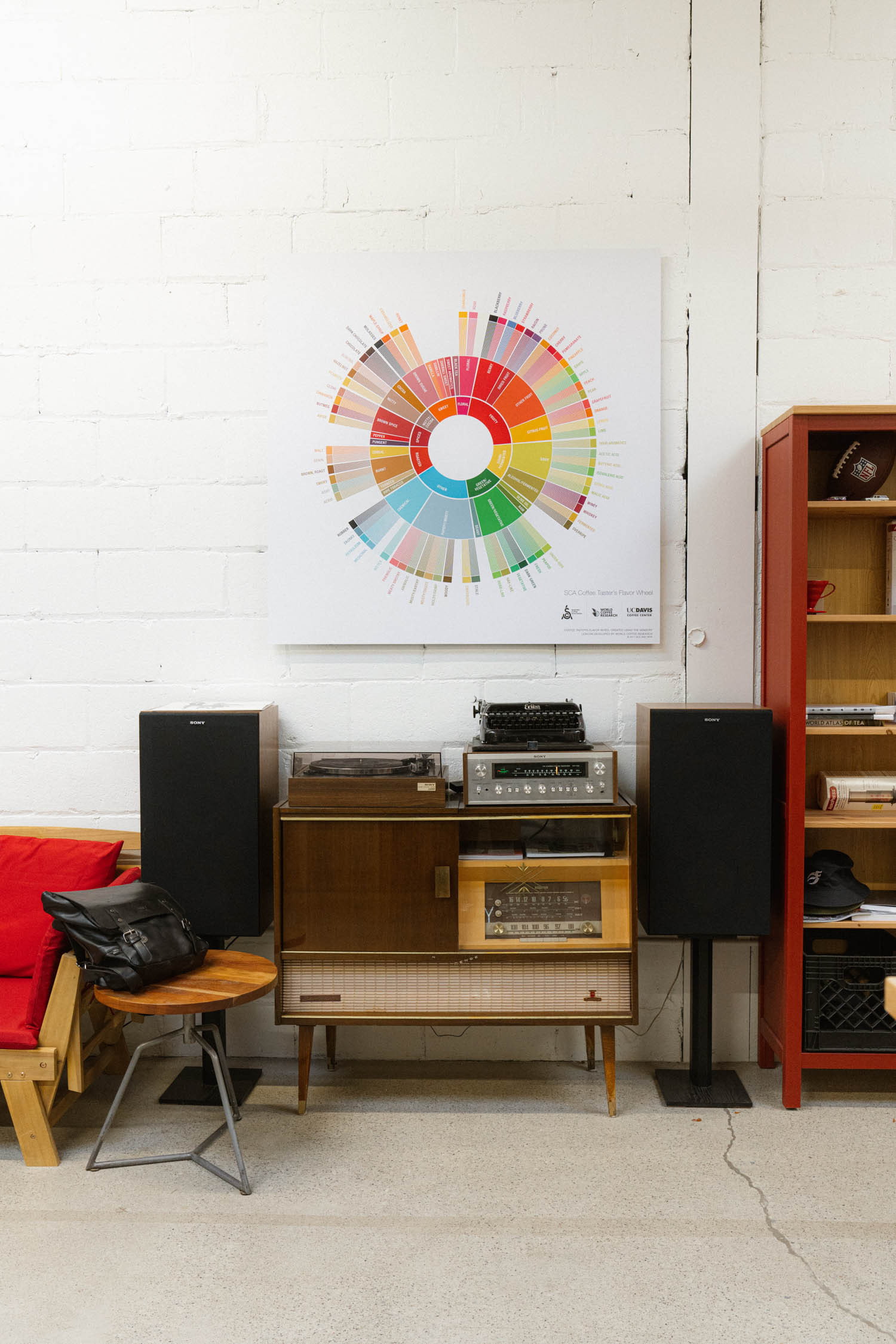
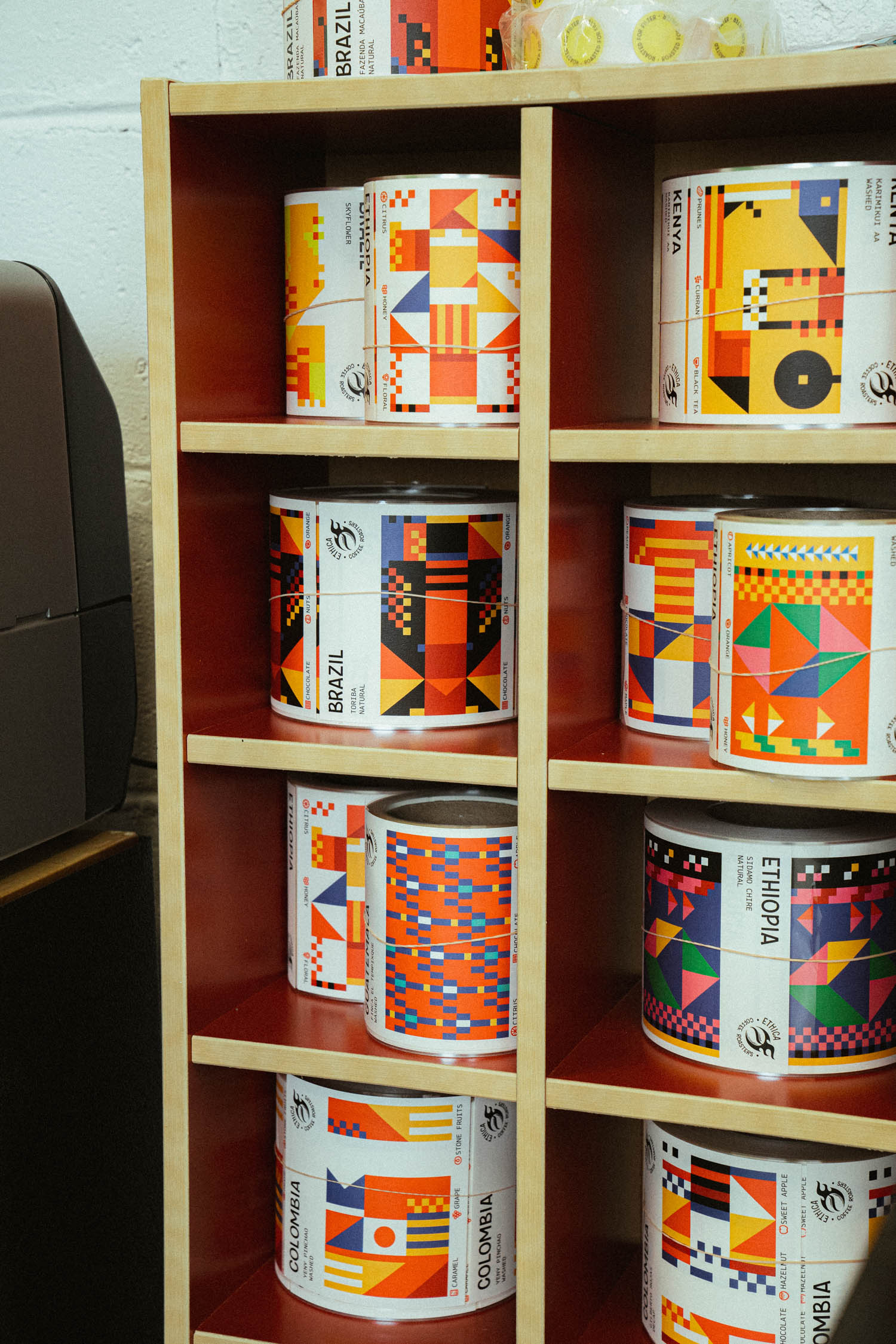
What kind of community are you looking to create around Ethica Coffee Roasters? What impact do you hope to have on your local community and beyond?
Community is at the heart of Ethica Coffee Roasters. When we opened our café in the Junction, we were embraced with support and appreciation. We believe good coffee is for everyone, transcending the notion of it being just a morning fuel. It’s a ritual and a delicious beverage that brings people together.
To foster this sense of community, we host live music events every Sunday, art exhibitions, and welcome the Queer Running Club (QRC) after their weekly 5k. We encourage conversations in our space at laptop-free tables, promoting a more connected and engaging environment.
In the café you can find artwork by Anthony Burrill, Troy Smith, Partisan Press and Nestor Calligraphy.
What do you believe are the most important aspects of a great cup of coffee? How do you ensure that each cup meets those standards?
Balance is the key. It will be different for different coffees and brewing methods but generally speaking balance is a huge part of a great cup.
To achieve that we use a simple equation: good coffee + right water + good equipment + correct technique = great cup of coffee. Eliminate one, and any attempt to prepare a great cup will fall short. When all these puzzles are done, you can maintain a high quality of each and every cup.
To ensure the high quality of the beans we work with producers and select our lots meticulously; for the brewing we use machines for the top notch manufacturers like La Marzocco, Curtis, Anfim, Mahlkonig and Ditting to name a few.
Correct technique is not as simple solution though. It requires more rigorous training which is hard to accomplish at the coffee shop during the service. So, we had to launch our own coffee school where we give courses and workshops dedicated to different aspects of the coffee preparation.
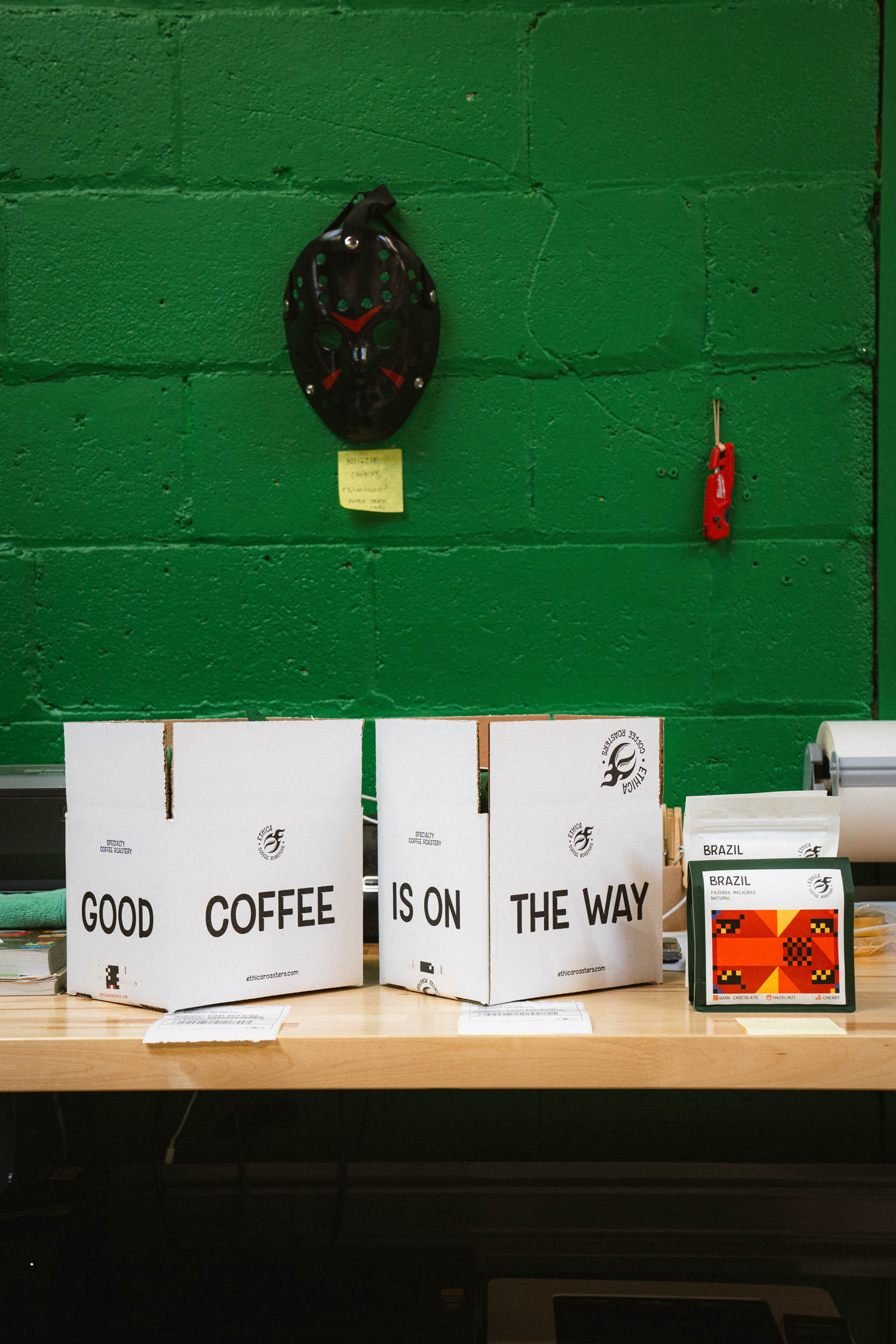
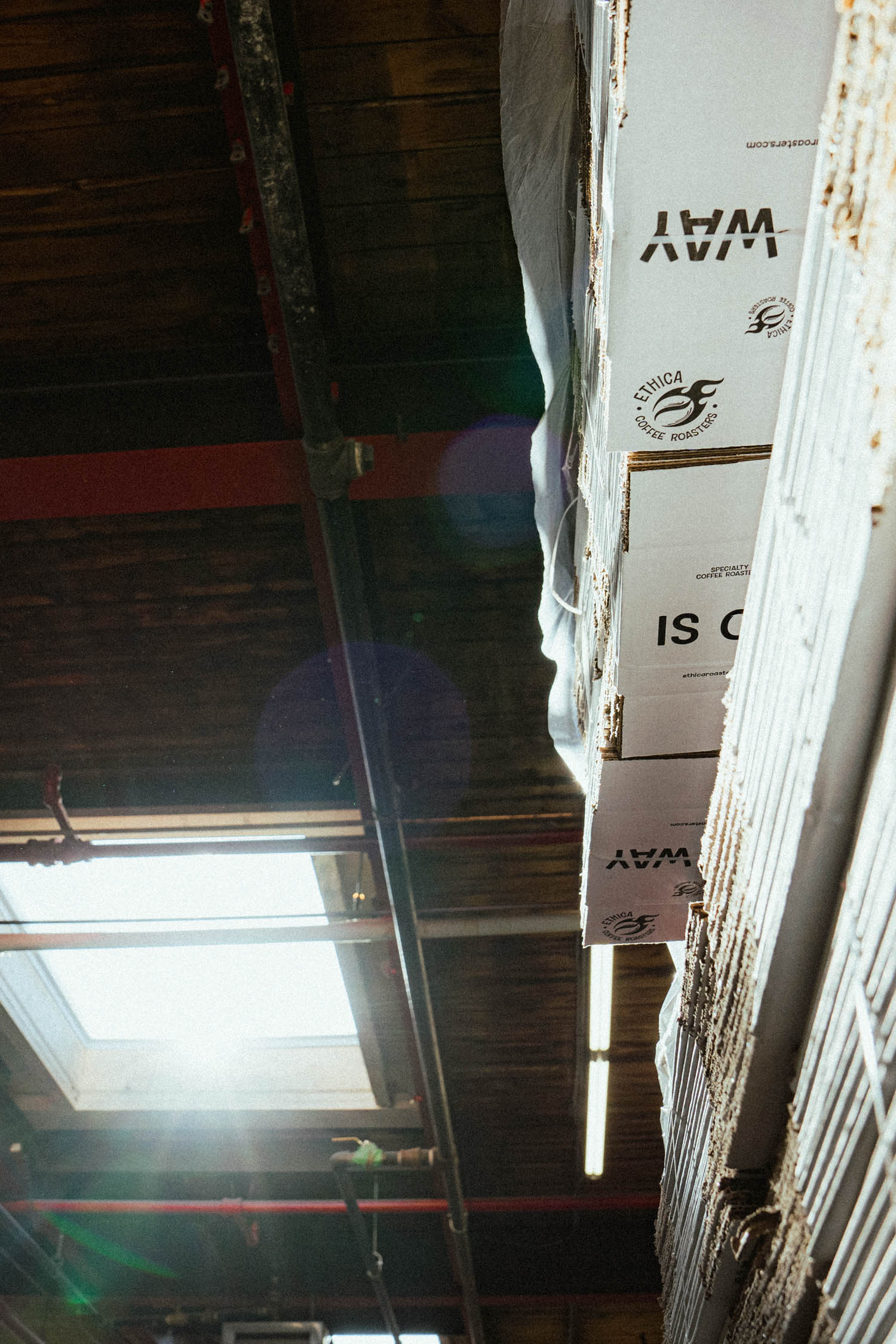
Can you share any memorable moments or milestones from Ethica Coffee Roasters’ history that stand out to you?
In 2024, we will celebrate five years of Ethica Coffee Roasters. Our journey has been filled with both challenges and triumphs. When we opened in 2019, we roasted coffee in the café, which contributed to the atmosphere but proved challenging to maintain volume and quality. In April 2023, we moved our roasting operations to a production space and later installed a second Giesen Coffee Roaster. This expansion has been a significant milestone for us.
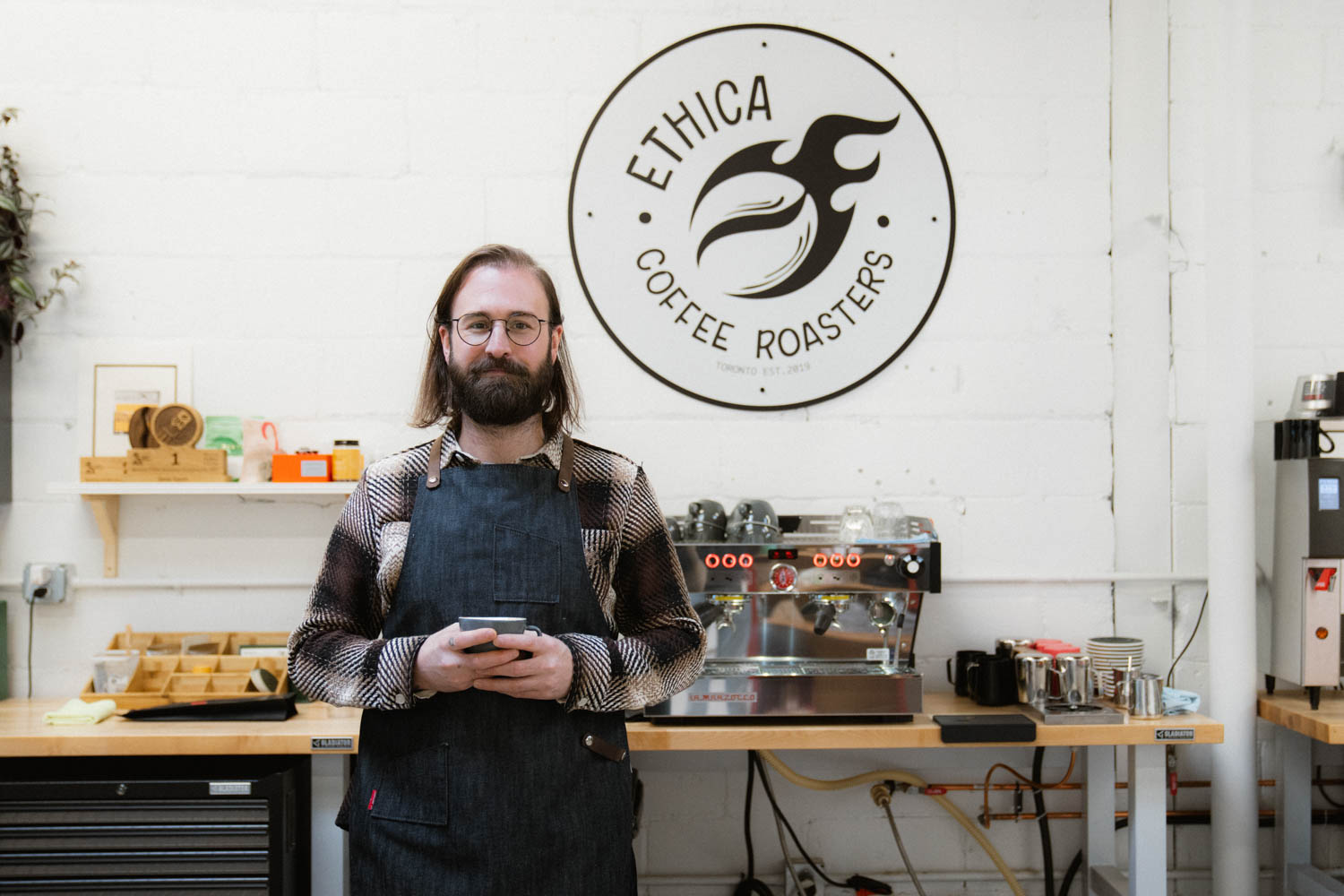
What are your future goals for Ethica Coffee Roasters? Are there any new projects or expansions on the horizon?
Our future goal is simple: to roast more good coffee. We’re grateful for the partnerships we’ve developed and look forward to growing together, fostering fruitful friendships in Canada and the US. We’re excited about the future and the possibilities it holds!

